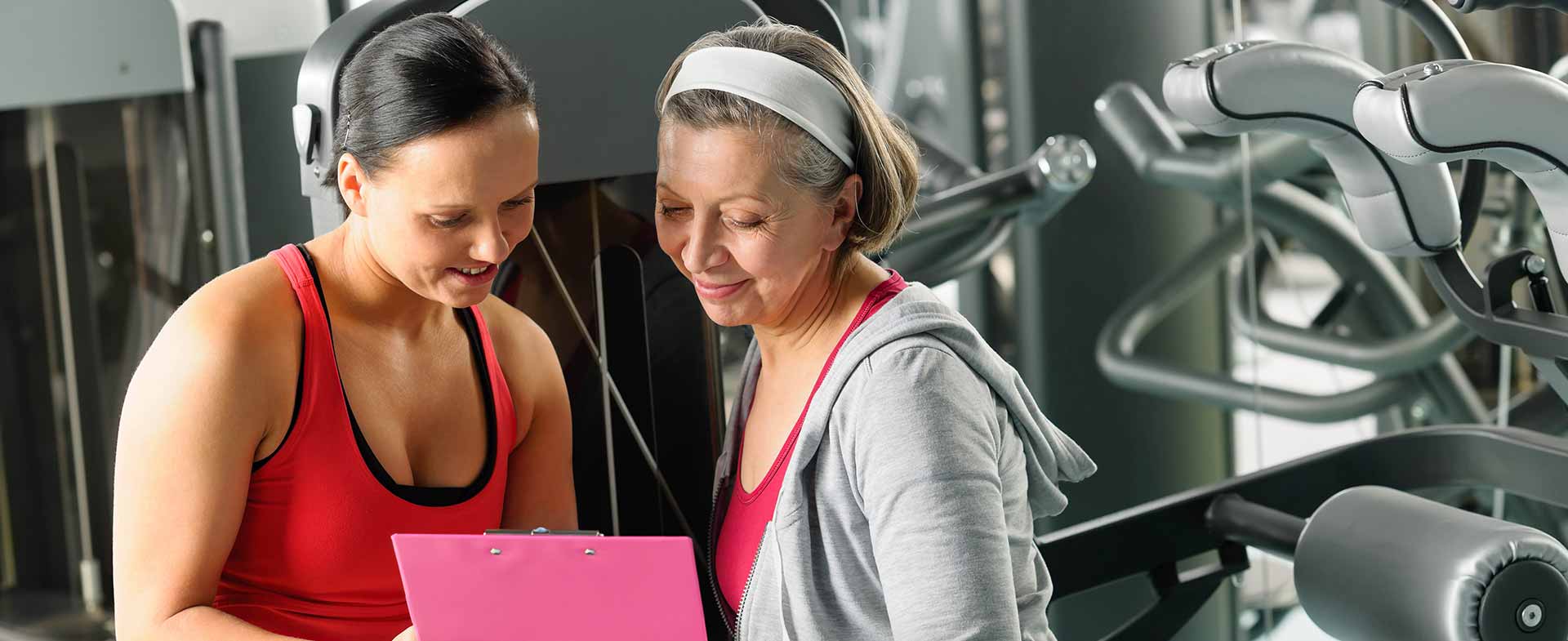Setting foot in a gym can be as uncomfortable as your first day of high school if you’re unsure what to do. Or maybe you know where to start but struggle with follow through. Hiring a personal trainer not only ensures you’ll quickly learn your way around the gym (and how to squat, bench and pull up with aplomb), it will also keep you accountable, so you’re more likely to stick to a workout regimen.
But with thousands of fitness professionals wielding dumbbells—each of whom offers a different set of skills, training and experience—it can be tough to find the perfect fit. Here are seven strategies for choosing the right personal trainer to help you maximize your gym time and reach your fitness goals:
- Define your goals. Do you want to bench 150 pounds? Run a marathon? Fit back into your skinny jeans? Whatever your goals, be sure to define them up front and ask prospective trainers how they plan to help you achieve them. If you want to get in shape for surfing, strengthen muscles for rock climbing or become an expert at a particular type of workout (aerial training, anyone?), be sure to find someone who has experience in that area.
- Check credentials. Good trainers have certifications from reputable organizations, and many also hold degrees in exercise physiology. There are several respected organizations that certify fitness professionals, including the American Council on Exercise (ACE), The American College of Sports Medicine (ACSM), the National Strength and Conditioning Association (NSCA) and CrossFit. Each organization has its own views, but all require continuing education, which is a must in the fitness world because information is constantly changing. A bonus: Nearly all credentialed programs from respected fitness organizations require CPR (cardiopulmonary resuscitation) training.
- Don’t dismiss experience. Ask how many years of experience a trainer has working with clients, particularly those who share your goals. Suffering from a lack of mobility due to arthritis or injury? Ask prospective trainers if they have clients who share those limitations. Have your heart set on becoming a triathlete? Make sure candidates have helped other clients achieve similar dreams. Unless you’re willing to play guinea pig, it pays to spring a few extra bucks for a trainer who has expertise in your desired area.
- Ask for references. Your trainer should be able to provide you with names and contact information of current and former clients, particularly ones whose fitness goals line up with your own. Ask these people about their training experience. Is the trainer on time, professional and somewhat flexible? What are his/her strengths and weaknesses? And most importantly, would they recommend the trainer to their family and friends?
- Be mindful of your budget. Personal training costs can add up, particularly with weekly visits. Check online to determine the going rate for training in your city (the average in Detroit is $60 to $70 per hour). Then come up with a few cost-saving options. Maybe your trainer offers semi-private workouts in groups of three or four, or perhaps they offer discounts if you purchase sessions in bulk.
- Ask how they track progress. Before you sign on the dotted line, make sure your trainer has a plan to monitor your progress. In addition to a baseline assessment (at the beginning of your training program), they should outline specific, measurable goals for you to hit during training. Benchmarks, such as fat loss, strength gains and other achievements not only help you stay on track, they also ensure the trainers are doing their job.
- Know what motivates you. Do you work best with a drill sergeant who constantly challenges you to go harder, faster and longer? Or do you benefit more from an encouraging cheerleader who applauds your every effort? Both styles get results. The key is selecting a trainer with a personality that fits your own. So don’t be afraid to ask about the trainer’s coaching style. Some may even offer a trial run at a discounted rate.
While choosing your ideal personal trainer can feel overwhelming, you can streamline the process by trusting your gut. Even the most in demand personal trainers can fall flat if their approach doesn’t jive with your personal goals. Focus instead on finding a knowledgeable, experienced trainer who you feel comfortable with. That’s the person who will not only help you achieve your fitness goals, but also motivate and inspire you throughout the process.
From injury prevention to treatment of sports-related conditions, visit henryford.com/sports for an appointment within 24 business hours or to download our sports medicine app, featuring first aid/injury help, videos for all athletes, contact information for physicians and trainers, and more.



